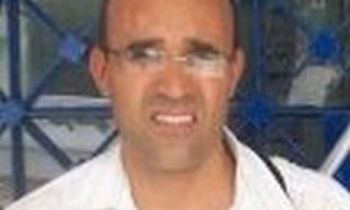IS JOURNALISM dying? That’s a question increasingly being asked as entertainment supercedes news in most of our media.
Across the world, fewer and fewer resources are dedicated to the gathering and processing of public information and the traditional role of journalists in providing two-way communication between the authorities and citizens.
The latest annual report on the state of the news media by the Project for Excellence in Journalism in the US – the largest-scale look at trends in the news media – warns: "The worry is the decline of full-time, professional monitoring of powerful institutions."
The project points to the central contradiction of modern media: more and more outlets covering fewer stories. "As the number of places delivering news proliferates, the audience for each tends to shrink and the number of journalists in each organisation is reduced," they say. "Thus, we tend to see more accounts of the same handful of stories each day."
Sounds familiar, doesn’t it? Many of these trends we see in our own media: more entertainment, the homogenisation of news, fewer specialists and other resources poking into the institutions of power and authority. When we finally got private television, something that was fought over for many years, it survives on the basis of wrestling and late-night soft porn.
Free-to-air channel e.tv gives us a choice of where we get our news, it is true, but it has a tiny reporting team that seldom offers much that is very different from the SABC. It sells its news and information mostly by offering prettier presenters.
Newspapers are in decline, the project reports about the US in particular, and they have always been the biggest news-gathering organisations and even the biggest providers of information on the internet. So in Philadelphia, for example, the number of newspaper reporters has dropped from 500 to 220 in the last 25 years. The Philadelphia Inquirer, the leading city paper, had 46 reporters covering the city as recently as 1990. Now it has 24.
There is a similar pattern in almost all the newspaper newsrooms of our own country. We have more newspapers, and a growing newspaper audience, but fewer journalists every year.
Independent Newspapers told its shareholders in Ireland just recently that it had performed better than ever in SA, due to "strong cost containment measures". In simple language, that means fewer reporters and editors to achieve their 35% increase in profits from this part of the world.
The report says that the "decades-long battle at the top between idealists (who believe in journalism) and accountants (focused on the bottom line) is now over". The idealists, they say, have lost, once and for all.
But the report is sanguine in its conclusion. "What is occurring, we have concluded, is not the end of journalism that some have predicted. But we do see a seismic transformation in what and how people learn about the world around them."
They point to a number of trends: power is moving away from journalists as gatekeepers over what the public knows; citizens are assuming a more active role as creators of their own news; audiences are moving from old media to new media. These changes accelerated in 2005, they reported.
"In the future, we may well rely more on citizens to be sentinels for one another. No doubt that will expand the public forum and enrich the range of voices whether it is soldiers blogging from Baghdad, (or) a radio programme on the war produced by students carrying eyewitness interviews with Iraqi citizens."
But these changes make it easier "for power to move in the dark": there are fewer skilled, professional journalists trained to scrutinise what is going on in the institutions of power and authority.
Also, they point to another critical trend: "Those who would manipulate the press and the public are gaining leverage over the journalists who cover them." In other words, the machinery of information management and manipulation is getting stronger and stronger at a time when the practice of journalism is weakening.
Harber is Caxton Professor of Journalism and Media Studies, University of the Witwatersrand. To comment on this column, visit his blog at www.theharbinger.co.za









